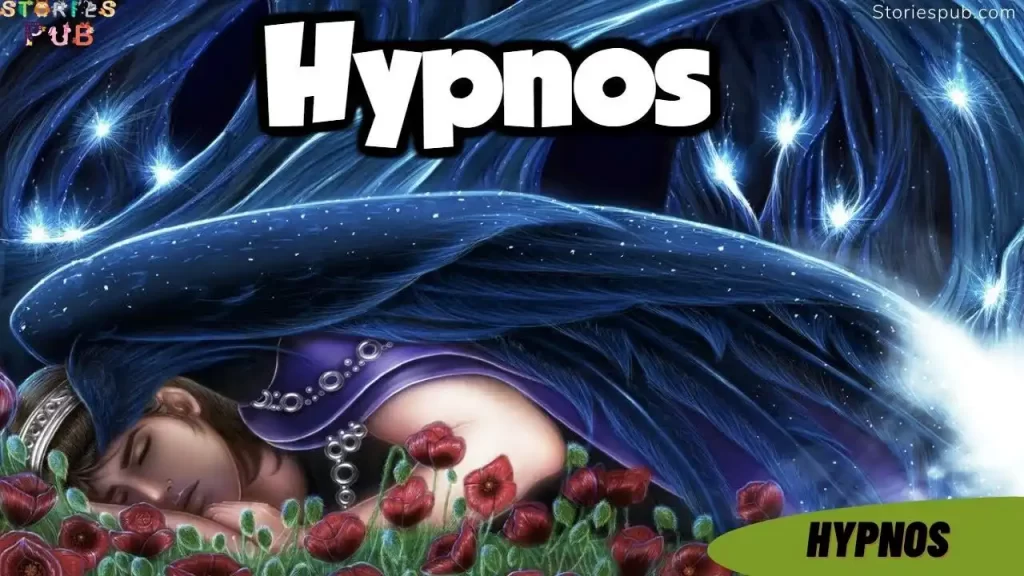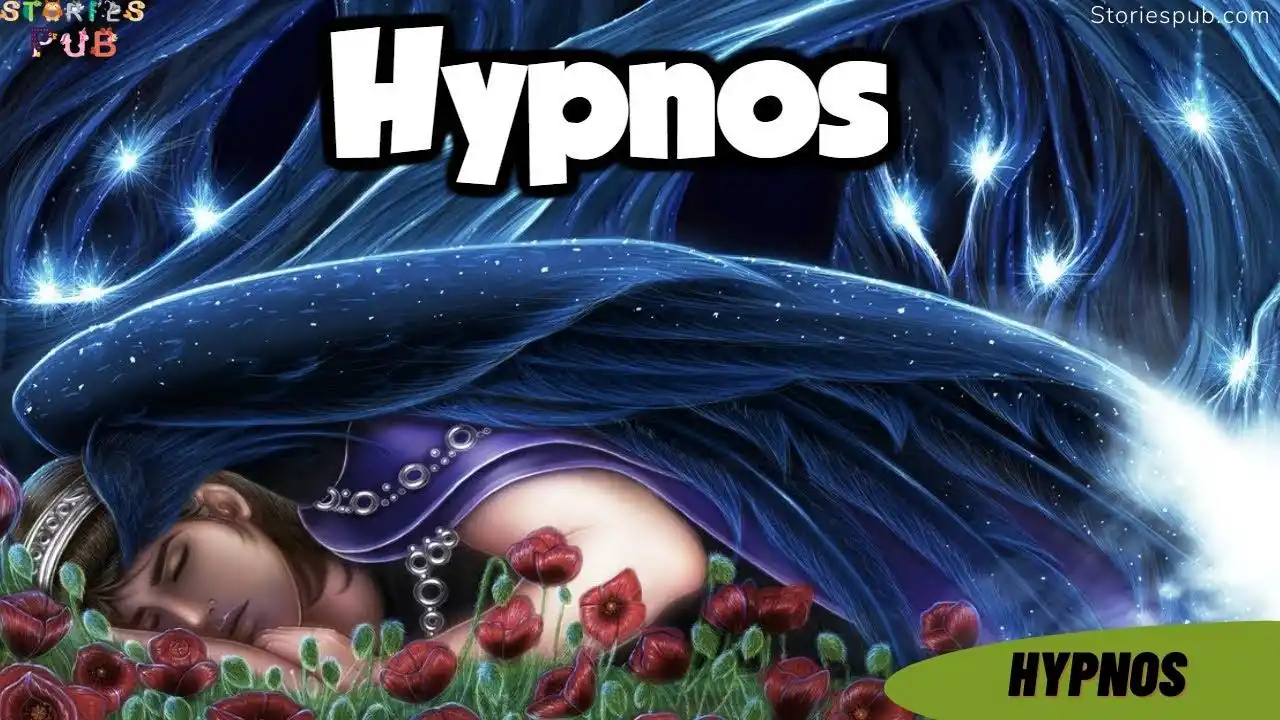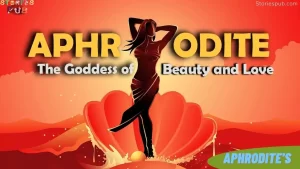Hypnos, the Greek God of Slumber: The Power of Sleep

Hypnos is the Greek god of sleep. He is the son of Nyx (Night) and Erebus (Darkness) and is often depicted as a handsome young man with wings on his temples or back. In Greek mythology, Hypnos was seen as a benevolent figure who brought peaceful and restful sleep to humans and gods alike. He was also believed to have the power to put people into a deep sleep or awaken them from their slumber.
You would also like to Read List of Greek Goddesses
Hypnos lived in a cave, which was located at the entrance of the underworld and was guarded by the river god Styx. He was often depicted carrying a poppy, which was thought to have sedative properties and to symbolise the peaceful, dream-filled sleep that he brought to those who ingested it.
You would also like to Read Zagreus Story
In addition to being the god of sleep, Hypnos was also associated with death, as sleep was seen as a form of death in ancient Greece. In this way, Hypnos was often shown as a shadowy figure who made sure the souls of the dead passed away peacefully.
You would also like to Read Tales of Ancient Greek Heroes
Despite his association with death, Hypnos was not considered an evil or malevolent deity. Instead, he was seen as an important and necessary aspect of life, bringing much-needed rest and rejuvenation to those who needed it.
Hypnos family background
Hypnos was the son of Nyx (Night) and Erebus (Darkness) in Greek mythology. He was the brother of Thanatos (Death), Morpheus (Dream), and the Fates.
Hypnos did not have a wife or a consort in classical mythology, but he was said to have fathered several children, including the Dreams (Oneiroi), who were personifications of dreams and visions.
You would also like to Read Medusa Story
The Oneiroi were said to reside with Hypnos in his cave at the entrance to the underworld, and they were responsible for carrying out his bidding and delivering dreams to mortals and gods alike. The Oneiroi were usually shown as ghostly figures, often with wings and other supernatural features. They were seen as powerful beings in their own right.
In some stories, Hypnos was also said to have fathered the god of sleepwalking, Icelus, but this was not a widely accepted belief in ancient Greek mythology.
You would also like to Read List of Greek God
Hypnos had several siblings in the pantheon of Greek gods and goddesses. Some of his most notable brothers and sisters include:
- Thanatos: Thanatos was the god of death and Hypnos’ brother. The two gods were often associated with one another, as sleep was seen as a form of death in ancient Greece.
- Morpheus: Morpheus was the god of dreams and was also Hypnos’ brother. Morpheus was responsible for the content of dreams, while Hypnos was in charge of bringing about sleep.
- The Fates: The Fates were the three goddesses of destiny who controlled the course of human lives. They were also siblings of Hypnos, as they were all children of Nyx (Night) and Erebus (Darkness).
- Momus: Momus was the god of criticism and mockery and was a brother of Hypnos. He was often shown as a clever and mischievous character who made fun of both gods and people.
Overall, the family of Hypnos was connected to the world of dreams, sleep, and the underworld. They were powerful and important gods in the Greek pantheon.
Hypnos Powers
In Greek mythology, Hypnos was the god of sleep and was considered to have several powers associated with sleep and dreams. Some of his most notable powers include:
- The power of sleep: Hypnos was the personification of sleep and had the power to bring peaceful and restful sleep to humans and gods alike. He was able to put people into a deep sleep or awaken them from their slumber and was often depicted carrying a poppy, which was thought to have sedative properties and symbolise the sleep he brought.
- Control of dreams: As the god of sleep, Hypnos was also considered to have control over dreams and the subconscious mind. He was believed to be able to manipulate the content of dreams, either to bring peace and comfort to those who slept or to torment them with nightmares.
- Association with death: Sleep was seen as a form of death in ancient Greece, and Hypnos was often associated with death as a result. People thought he could help people die peacefully, and he was sometimes shown as a shadowy figure who watched over the souls of the dead as they left their bodies.
- Influence on the mind: In addition to controlling sleep and dreams, Hypnos was also believed to have a profound influence on the human mind. He was thought to be able to bring peace and calm to those who were troubled or disturbed, and inspiration and clarity to artists and poets.
Overall, Hypnos was seen as a powerful and benevolent deity who was central to the lives of mortals and gods alike. His power over sleep and dreams was highly regarded, and he was thought to be an important god in the ancient Greek pantheon.
Hypnos Weakness
In Greek mythology, Hypnos, the god of sleep, was generally considered to be a benevolent figure and was not thought to have many weaknesses. However, there are a few stories in which his powers were limited or challenged:
- Immortality: Although Hypnos was a god and had significant powers, he was not considered to be immortal. He was vulnerable to death, like all the other gods and mortals in Greek mythology.
- Influence over the gods: Although Hypnos had the power to bring sleep to humans and gods alike, he was not always able to put the gods to sleep. In some stories, the gods were immune to his powers, and he was unable to put them under his control.
- Resistance to his powers: In some stories, humans or other creatures were able to resist the powers of Hypnos and stay awake despite his efforts to put them to sleep. This was seen as a demonstration of their strength of will and determination.
Hypnos’ famous achievements and wars
In Greek mythology, Hypnos, the god of sleep, was not involved in many wars or battles, as his role was more focused on bringing peace and rest to the world. However, he was involved in a few notable events and achievements:
- Overcoming Insomnia: According to one story, Hypnos was once approached by a mortal who was unable to sleep. Hypnos taught the mortal how to relax and meditate, which helped him get rid of his sleeplessness.
- Aiding Zeus: In another story, Hypnos was asked by Zeus to help him sleep so that he could escape the anger of Hera. Hypnos obliged and helped Zeus fall into a deep sleep, allowing him to escape the wrath of Hera.
- Capturing Death: In another tale, Hypnos and Thanatos, his brother, were captured by the hero Sisyphus, who wanted to prevent death from taking his life. The gods were eventually freed, but this event demonstrated the power and importance of Hypnos, as death could not take place without him.
Hypnos God’s facts
Here are some interesting facts about Hypnos, the Greek god of sleep:
- Origin: Hypnos was one of the primordial gods in Greek mythology and was born from the union of Nyx (night) and Erebus (darkness). He was considered to be one of the oldest and most powerful of the gods.
- Symbolism: Hypnos was often depicted carrying a poppy, which was thought to symbolise sleep and have sedative properties. He was also sometimes depicted with wings, which symbolised the swiftness and ease with which he brought sleep.
- Divine Abode: Hypnos was believed to live in a cave located in the Underworld, near the river Lethe, which was said to bring forgetfulness to those who drank from it. Two snakes, who stood in for the calm and peace of sleep, guarded the entrance to his cave.
- Relationship with Morpheus: Hypnos was often associated with Morpheus, the god of dreams. Morpheus was responsible for the content of dreams, while Hypnos was responsible for bringing about sleep and allowing the dreams to take place.
- Association with Death: In ancient Greece, sleep was often seen as a form of death, and Hypnos was associated with death and the underworld. He was sometimes shown as a shadowy figure who watched the souls of the dead leave their bodies.
- Hypnos was widely worshipped in ancient Greece and was considered to bring peace and comfort to those who sought his aid. People would often make offerings to him in the hopes of having a good night’s sleep, and he was considered to be an important aspect of daily life.
Symbol of the God Hypnos
Hypnos was often associated with several symbols, which were thought to represent his powers and influence. Some of the most notable symbols associated with Hypnos include:
- Poppy: The poppy was one of the most common symbols of Hypnos and was thought to have sedative properties. In ancient Greece, the opium-rich sap of the poppy was used to help people fall asleep and was often sacrificed to the god Hypnos.
- Wings: Hypnos was often depicted with wings, which symbolised the swiftness and ease with which he brought sleep. The wings also represented the freedom and escape from the worries of the world that sleep provided.
- Snake: The snake was another symbol of Hypnos and was often depicted coiled around the entrance to his cave. Snakes were associated with peace and calm, and they symbolised the restful sleep that Hypnos provided.
- Couch: Hypnos was also sometimes shown lying down on a couch, which was a way to show that sleep brought comfort and rest.
These are some of the most notable symbols associated with Hypnos, the Greek god of sleep. These symbols helped to reinforce the idea of sleep as a peaceful and restful state and helped to emphasise the importance of sleep in the daily lives of the ancient Greeks.
Did Hypnos sleep with Zeus?
In Greek mythology, there is no record of Hypnos sleeping with Zeus. Hypnos was the god of sleep and was often called upon to bring rest and peace to the world. He was not involved in romantic relationships with other gods but was revered and worshipped for the role he played in bringing sleep to the mortal world.
You would also like to Read Nyx Goddess
It is important to note that the myths and legends of ancient Greece often contain elements of allegory, symbolism, and metaphor and should not be interpreted literally. The relationship between Hypnos and Zeus, like many of the relationships between the gods in Greek mythology, was meant to represent a deeper connection or understanding between the two beings rather than a physical or sexual relationship.
Thanks For Reading… Hypnos, the Greek God of Slumber: The Power of Sleep
Hey kids, how much did you like Hypnos, the Greek God of Slumber: The Power of Sleep? Please share your view in the comment box. Also, please share this story with your friends on social media so they can also enjoy it, and for more such stories, please bookmark storiespub.com.
Check out other stories that we have:





